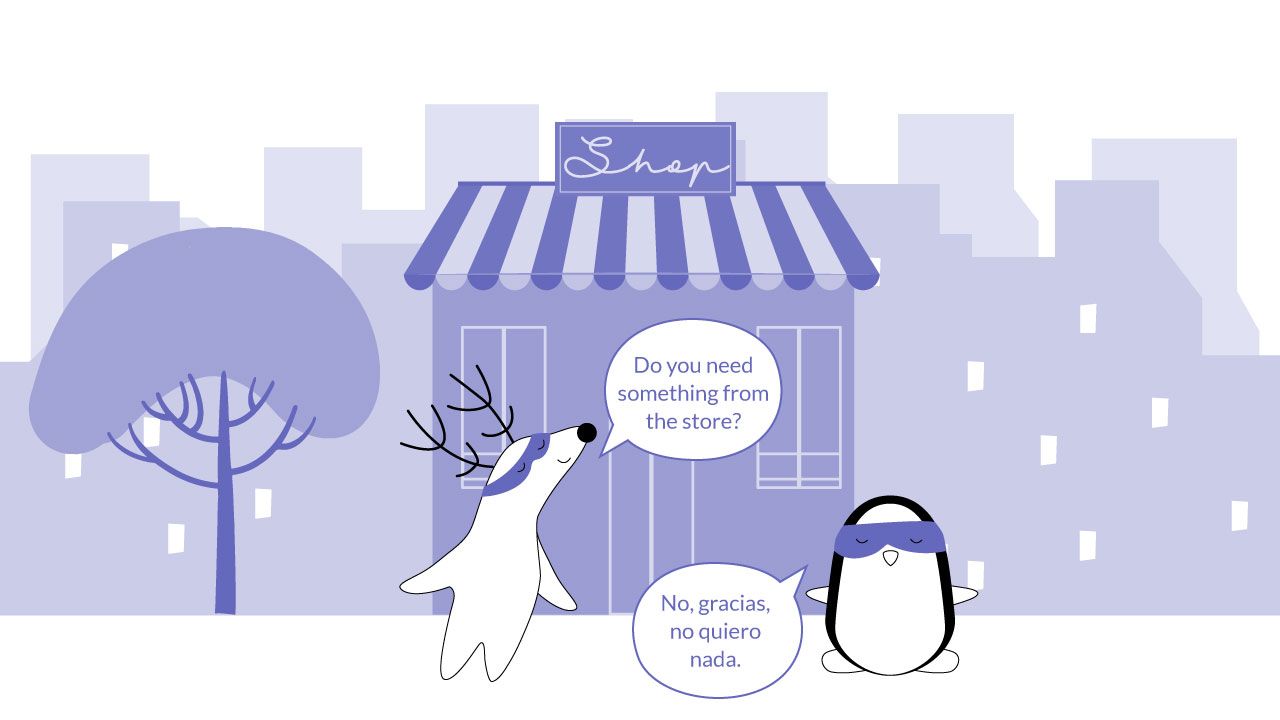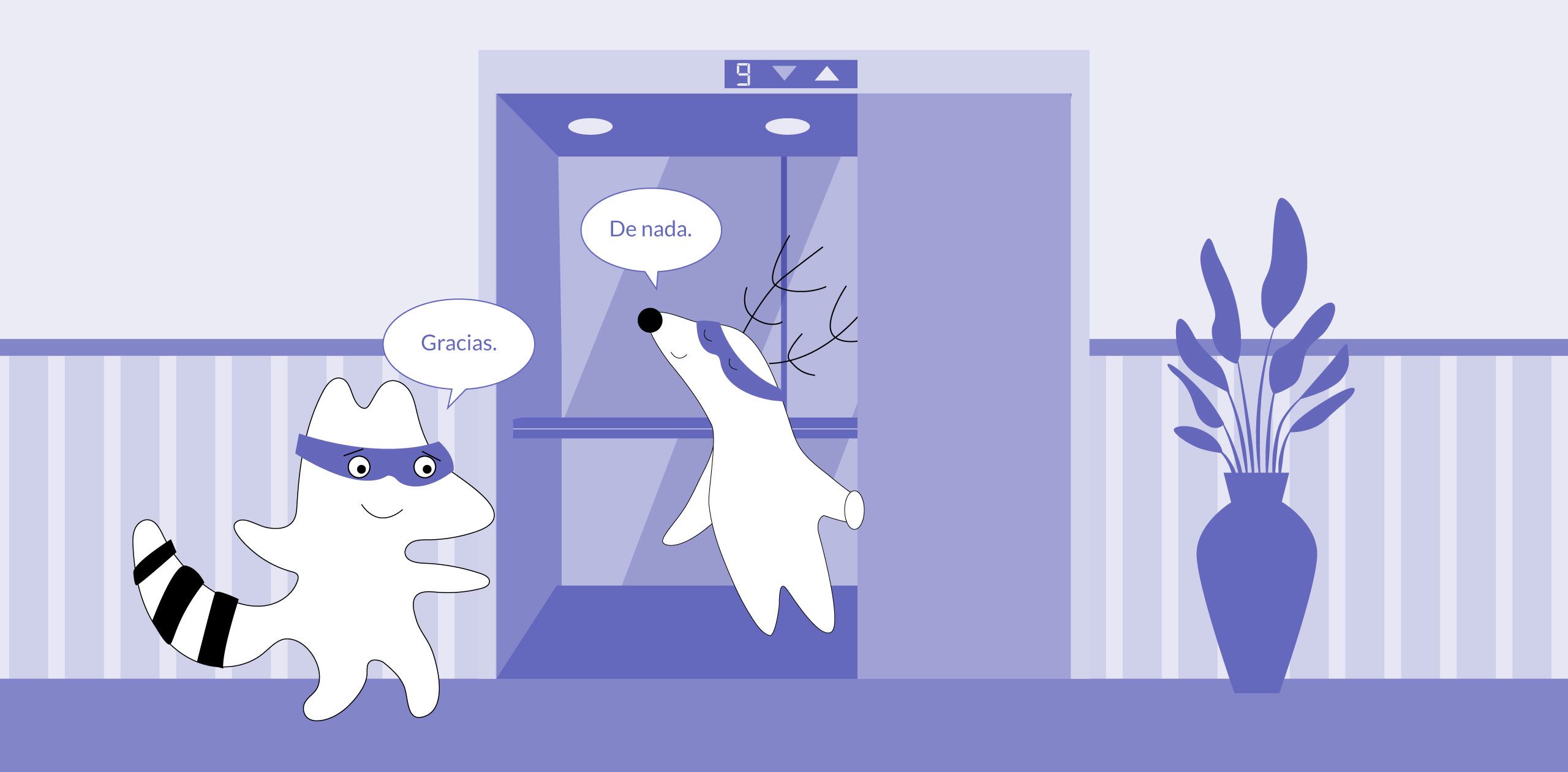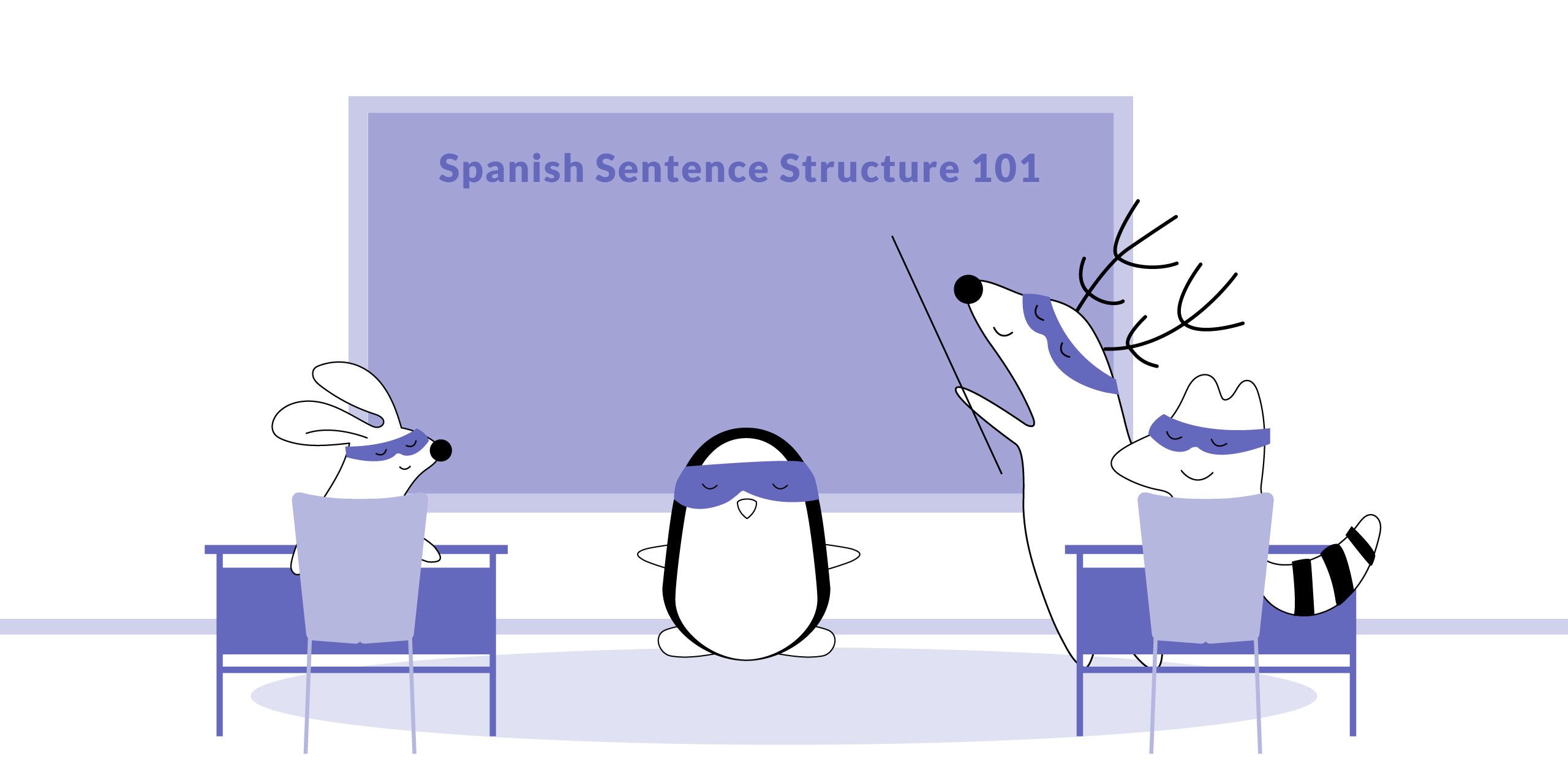
Learning how to say “No” in a different language can be extremely helpful, especially when traveling or interacting with people from other cultures. Saying “No” in Spanish can be a difficult task, especially if you just started learning Spanish and don't know the right phrases.
Gestures and body language can help you out, but cannot always rely on them. Fortunately, there are many different ways to say “No’ in Spanish that will help you get yourself out of a multitude of life situations.
In this article, we will explore some of the most common ways to say “No” in Spanish, including No puedo and No quiero, and much more. We'll also cover the contexts in which each phrase is most commonly used to boost your Spanish fluency. Check them out!
No puedo
One of the most common ways to say No in Spanish is No puedo. This phrase translates to "I can’t" and can be used when you're unable to do something.
Native
Translation
No puedo.
I can’t.
You can use this phrase in a variety of contexts, and is generally suitable for all situations. For example, you could use it if you're unable to do something, don't want to do something, or aren't sure if you can do something.
If you can't do something particular, you can use the phrase No puedo hacerlo. This translates to "I can't do it" and is a great way to decline an offer or request in a polite way.
Native
Translation
No puedo hacerlo, lo siento.
I can't do it, I'm sorry.
No puede ser
If you want to sound a bit more sympathetic in your rejection, you can say No puede ser, which literally means “It can’t be.” This is a way of expressing disbelief or disagreement while still being polite. It’s often used in response to hearing something outrageous or unbelievable.
Native
Translation
No puede ser.
It can’t be.
No quiero
If you don't want to do something, you can use the phrase No quiero. This translates to "I don't want to" and is a polite negative answer you can use to decline an offer or request. For example, if someone offers you a snack when you’re not hungry, you can say No, gracias, no quiero.
Native
Translation
No, gracias, no quiero.
No, thanks, I don’t want to.
If you don't want anything, you can use the phrase No quiero nada. Nada is one of the most frequently used negative words in Spanish grammar. This phrase uses a double negative, so we can translate it to English as “I don’t want anything” or “I want nothing,” as we typically use only one negative word in English to avoid confusion.
Native
Translation
No quiero nada.
I don’t want anything.
This is a great way to say “No” if someone offers you something and you're not interested. For example, if someone asks you if you need something from the store, you could say No, gracias, no quiero nada.

No estoy seguro
If you're not sure about something, you can use the phrase No estoy seguro. This phrase means "I'm not sure" and is a great way to say “No” without being too forceful. It's also a good way to buy yourself some time to make a decision.
For example, if someone asks you if you want to go to a party and you're not sure, you could just say No estoy seguro, voy a pensarlo.
Native
Translation
No estoy seguro, voy a pensarlo.
I'm not sure, I'll think about it.
No estoy interesado
If you're not interested in something, you can use the phrase No estoy interesado. This translates to "I'm not interested" and is a straightforward way to say “No” in Spanish.
For example, imagine you're at a museum and a tour guide asks if you want to join their group. If you're not interested, you can say Bien, no estoy interesado.
Native
Translation
Bien, no estoy interesado.
Well, I'm not interested.

No sé
Alternatively, if you're unsure about something or you don't know how to respond to a question, you can say No sé. This translates to "I don't know" and is a great way to politely decline answering a question.
For example, if someone asks you for directions and you don't know where they're going, you could say Lo siento, no sé.
Native
Translation
Lo siento, no sé.
I’m sorry, I don’t know.
Voy a decir que no
If you're going to say no, you can use the phrase Voy a decir que no. This is a nice way to warn someone that you're about to decline their offer or request. For example, if someone invites you to join them for something and you don't want to do it, you could say Voy a decir que no, pero gracias por preguntar.
Native
Translation
Voy a decir que no, pero gracias por preguntar.
I'm going to say no, but thank you for asking.
Para nada
When you want to say “No” in Spanish, Para nada is a great expression to use. It basically means "for nothing” or “at all,” and is often used to emphasize a negation.
Native
Translation
Para nada.
Not at all. No way.
When used by itself, its meaning is close to “Not at all” and it is a softer way to say “No” in Spanish. You can use this expression in a variety of contexts. For example, if someone asks if you’re satisfied with the results of your work, you can say Para nada.
Alternatively, you can use a short Spanish expression Qué va that means “No way” the same way you use Para nada.
No tengo nada que ver
If you want to say that something is not your business or none of your concern, you can use the phrase No tengo nada que ver. This translates to "I have nothing to do with it" and is a great way to politely decline to get involved in something.
For example, if someone asks you for your opinion on a situation and you don't want to share it and get involved, you could say No tengo nada que ver, pero gracias por preguntar.
Native
Translation
No tengo nada que ver, pero gracias por preguntar.
I have nothing to do with it, but thank you for asking.
Ni se te ocurra
If you want to say “No” in a very forceful way, you can use the phrase Ni se te ocurra. This translates to "Don't even think about it" and is a great way to decline an offer or request that you're not interested in.
Native
Translation
Ni se te ocurra.
Don't even think about it.
For example, if someone offers you a drink and you don't want one, you could say Ni se te ocurra, no.

Ni lo sueñes
If you want to say “No” in a forceful way, you can use the phrase Ni lo sueñes. This translates to “In your dreams!” which actually means that is never going to happen. It is a great informal way to shut down an offer or request that you're not interested in or found obnoxious or offensive.
Native
Translation
Ni lo sueñes.
In your dreams!
For example, if someone asks you ¿Quieres salir conmigo? (Do you want to go out with me?), you can answer Gracias, pero ni lo sueñes. This basically means "Thanks, but don't you even dream about it."
De ninguna manera
If you want to be really definitive in your rejection, you can use the phrase De ninguna manera – ninguna is another negative word in the Spanish language that means basically “none”. This expression translates to “No way” or “Absolutely not.” This is a very straightforward way of saying “No” and leaves little to no room for interpretation.
Native
Translation
De ninguna manera.
No way. Absolutely not.
You can use it when someone asks you to do something you really don’t want to do or if you strongly disagree with something. Be careful not to use this phrase too much, however, as it can come across as blunt and rude.
Ni hablar
If you want to resolutely refuse something, you can say Ni hablar which can be translated as “No way,” “Not a chance,” or “Forget it.”
Native
Translation
Ni hablar.
No way. Not a chance. Forget it.
This is a strong way of saying “No” in Spanish and should only be used in situations where you really don’t want to do something or if you strongly disagree with something.
The Bottom Line

As you can see, there are plenty of negative words and phrases Spanish speakers use to express negation. If you’re ever in a situation where you need to say “No” in Spanish, the phrases we’ve listed above will help get your point across.
Each phrase is suitable for different contexts and can be used to reject anything from something you simply cannot do to an outrageous request. Just make sure not to overuse any of these phrases, as they can come across as rude if used too often.
Also, download our Langster app to learn and practice proper Spanish phrasing and expand your Spanish vocabulary. Good luck!









